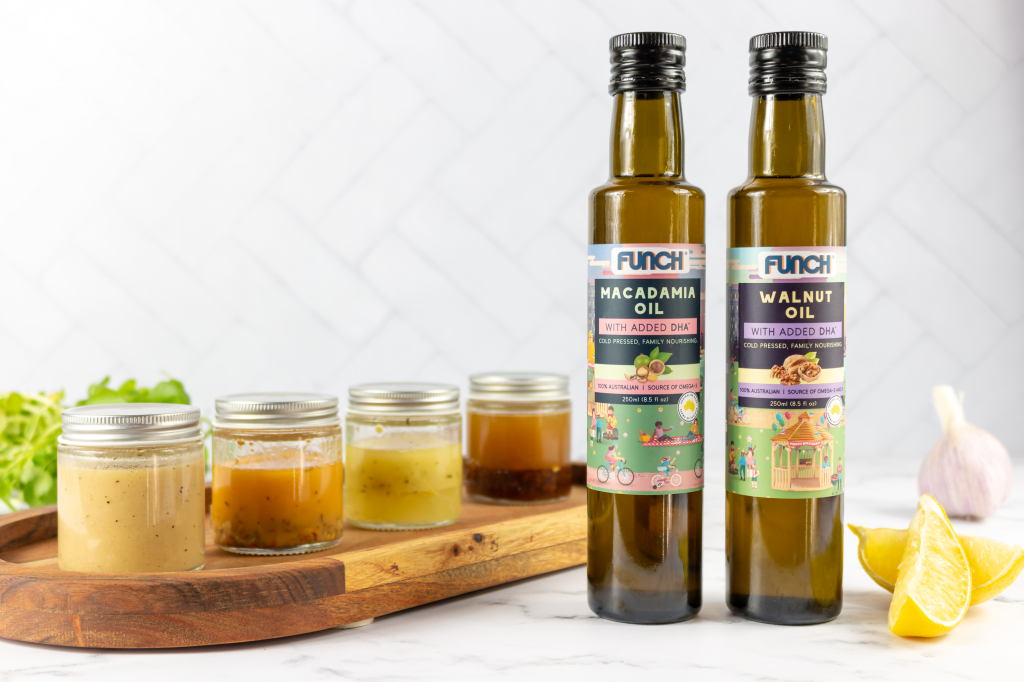The ASX-listed food company, which recently posted record First Half results, is refusing to take its foot off the pedal, preparing for carbon neutral certification and the launch of a unique ambient plant-based meat range.
The company, which comprises three retail brands – FUNCH, Sensory Mill and Blue Dinosaur – targets the health, baby food and organic markets. In February, it reported strong First Half results, recording revenue of $3.24 million, up 66.1 percent on the previous corresponding period. It was the first time the company has surpassed $3 million in a half-year period.
In addition, Forbidden’s eCommerce platform is booming, generating $517,000 in the First Half of FY22 – a staggering 649.3 percent increase on the corresponding period in FY21. Digital commerce now represents 16 percent of revenue, up from 3.5 percent.
It’s safe to say then, that things are looking pretty good for the company, which when it launched in 2010, was one of the first in the now burgeoning plant-based food industry. Despite being a trailblazer in the sector, CEO Marcus Brown says Forbidden Foods has never specifically targeted vegans. Its focus has always been on creating healthy, ethically sourced products, and being plant-based is often just a by-product of that, he said.

“We don’t find that shouting out you’re plant-based gets you more consumers,” he said. “People will buy things because they’re organic; they’ll buy things based on transparency; they’ll look at the nutritional panels; they’ll look at where things are made. They might be shopping for a specific dietary requirement or social cause. We find that we don’t need to shout out that we’re plant-based because people in our demographics tend to research the products heavily anyway.”
The demographics Brown is referring to are Millennial and Gen Z consumers, who when looking for healthy, responsibly sourced food products often assume they’re plant-based too. As such, the plant-based category isn’t just about an ingredients list, Brown said. It’s an umbrella term, which covers other purchasing influencers including organics, provenance, and health.

“The term ‘plant-based’ denotes the whole next generation of businesses coming out. They’re not only supporting healthy diets and healthy consumers, they’ve got good, healthy sourcing policies and are promoting a predominantly meat-free diet. These are the sorts of things that are gaining much more momentum … and I see this happening in the US. Plant-based companies are doing vegan products, but they’re also contributing to environmental causes and getting certified B Corps. It’s a whole ecosystem,” Brown said.
Chasing carbon neutrality
It makes sense then, that a key target for Forbidden Foods this year is achieving carbon neutrality. The company has set ESG (Environmental, Social and Governance) targets and has engaged ESG consultants, Cress Consulting, to audit its operations.
Making a public commitment to operate as sustainably as possible is hugely important if Forbidden Foods wants to stay relevant to its target market – something the company acknowledged in its Q2 activity report. “The company will continue to develop our ESG practices to ensure we deliver our product to our consumers in a sustainable, environmentally friendly and socially conscious manner. We believe sustainability and social conscience is an important purchasing consideration for our core consumer demographic and we will continue to be transparent in our communications to the market …” the report reads.
[Plant based is] an umbrella term, which covers other purchasing influencers including organics, provenance, and health.
While internal processes and systems will be addressed as part of the certification, Brown said the focus will be more on Forbidden’s suppliers.
“We’ve had some ESG audits already and based on our current business it’s been fairly positive. We’re basically doing 99 percent of what we should be doing … So for us, I think carbon neutral will be more about how we as a business will monitor our suppliers and what they’re doing. We’re already putting processes in place to offset the contributions from our energy usage, wastage, packaging and those sorts of things,” he said.

Making a play in plant-based
A more imminent focus for Brown is the rebrand of Forbidden’s Sensory Mill brand, which will include the launch of a new plant-based meat range – the company’s first foray into traditional meat alternatives.
Expected to launch in the coming weeks, Brown says the range will also be targeting developing nations in need of affordable, easy to roll-out alternatives to animal protein.
“We’re developing an ambient range, so they’re not frozen or refrigerated meats. They’re not like Impossible, Beyond or v2. They’re basically dehydrated textured vegetable products. You rehydrate them with water and oil and they become like minced meat.”
Being an ambient product is a huge plus, says Brown, in part because it means the products can be offered via Forbidden’s eCommerce channels, which could soon represent one-third to half of company revenue.
“Ninety-nine percent of the products out there are refrigerated. You can’t sell them online because of perishability. You also can’t ship them overseas because there’s not a fridge or freezer at every destination. So we think having an ambient product that is dry, with a long shelf life actually alleviates those protein issues in developing countries, and allows for local people to have it sitting in their cupboard for a while, or take it camping.”
Plant-based beef, pork and chicken products will be rolled-out to consumers in the next few weeks – welcome news considering the company (like many) has experienced delays in the current supply chain environment.
Lucky for Forbidden, the delays have only been a matter of weeks – a tiny blip on the radar of an innovative food company determined to make 2022 an even more exciting and profitable year than the last.
To stay up-to-date on the latest industry headlines, sign up to Future Alternative’s enewsletter.
Posted on:


